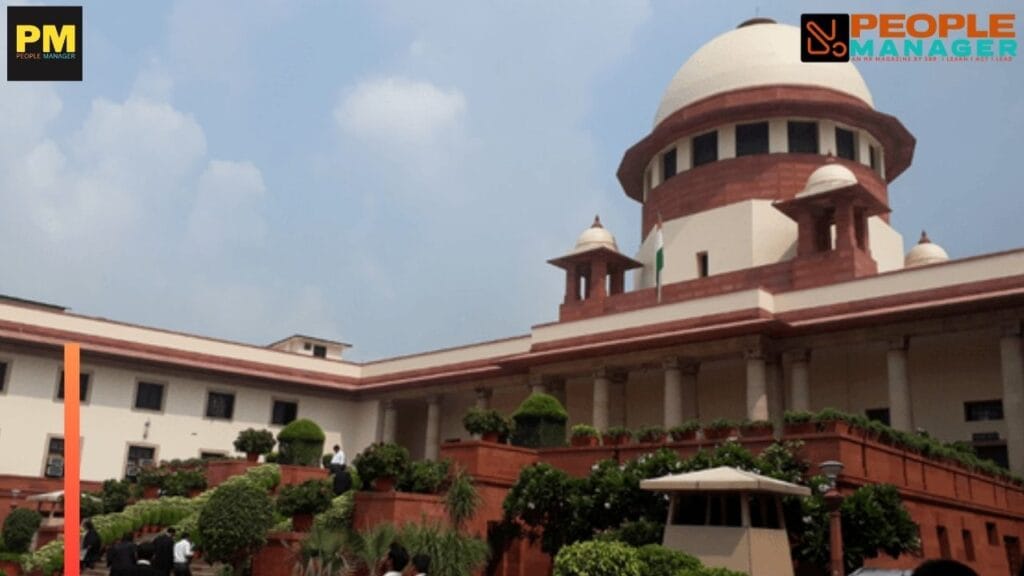Bharti Airtel v. A.S. Raghavendra: Employee cannot dictate employment terms, employer’s appraisal prevails: SC
Bharti Airtel case ruling by the Indian Supreme Court, an employee cannot dictate terms of employment to their employer. The Court emphasized in a recent decision (M/s Bharti Airtel Limited v. A.S. Raghavendra) that the employer's competent authority has the last say when it comes to ratings and assessments.

The Supreme Court stated that the opinion of the appropriate authority inside the corporation is final, and that an employee of any company cannot dictate the terms of his employment to his employer.
In an appeal filed by Bharti Airtel Limited, the Court made this observation in response to the Karnataka High Court’s decision to dismiss the company’s appeal, which was prompted by the Single Judge’s partial approval of the employee’s writ petition.
The two-Judge Bench comprising Justice Hima Kohli and Justice Ahsanuddin Amanullah held, “Though much emphasis was laid by the respondent on his claim that his resignation was forced, this Court is not persuaded to accept such a contention, basically on the ground that the language employed by the respondent in his resignation letter is to the effect that he was submitting his resignation, which may be approved, keeping the interest of his family and career and also that with utmost feeling of humiliation and insult he was submitting such resignation. It further indicates that over the six months preceding his resignation, he felt that he had been subjected to unfair rating, which indicates his disillusionment and dissatisfaction, while working for the Company. Pausing here, the Court would indicate that a person, in the employment of any company, cannot dictate terms of his employment to his employer. He has channels for venting his or her/his grievances, but ultimately, it is the view of the competent authority within the organization that will prevail with regard to his appraisal/rating.”
Senior Advocate C. U. Singh appeared on behalf of the appellant, while the respondent, A.S. Raghavendra appeared in person.
Brief Facts of the Judgment –
The respondent employee was appointed as the Regional Business Head (South) in 2009 and received a package worth Rs. 22 lakhs, which included a fixed salary of Rs. 13,20,000 and variable pay of Rs. 8,80,000. The respondent employee was interrogated by concerned officials of the appellant firm. The worker oversaw a group of four account managers representing various states. He used the internal system to submit his first resignation request in 2011, which was approved by the business. As a result, he received Rs. 5,92,538 as the complete and final settlement of all of his claims. After roughly 19 months, he petitioned the Deputy Labour Commissioner, claiming that his departure was forced. This sparked the start of conciliation procedures, but they were eventually terminated.
In 2013, the State Government filed a complaint under the 1947 Industrial Disputes Act with the Labour Court. After rendering its decision in 2017, the Labour Court determined that the worker had not presented any evidence or made a plea proving he was a “workman” acting in the capacity of a manager. This infuriated the employee, who filed a writ petition in the High Court. The single judge granted the motion in part on the grounds that the employee was a “workman.” The Labour Court was tasked with making a decision after the lone judge overturned the award. The company filed an appeal with the Division Bench after feeling wronged; however, it was dismissed, so it turned to the Apex Court.
The Supreme Court, in view of the facts and circumstances of the case, noted, “In our considered view, mere absence of power to appoint, dismiss, or hold disciplinary inquiries against other employees, would not and could not be the sole criterion to determine such an issue. Holding otherwise would lead to incongruous consequences, as the same would, illustratively, mean that, employees in high-ranking positions but without powers to appoint, dismiss, or hold disciplinary inquiry would be included under the umbrella of “workman” under Section 2(s), ID Act. We cannot be oblivious to the impact of our decisions.”
The Court additionally stated that in order to warrant intervention, a Tribunal’s ruling that is being examined by the High Court must have a level of defect that is greater than typical; but, in this instance, such a circumstance did not exist. It was mentioned that the statement “not of his free will” would not imply that the firm coerced him into doing it.
“Rather, what can be gathered from the materials on record and the orders of the fora below, is that the resignation was more out of a sense of being unfairly rated by the appellant. From the material available, it also transpires that the respondent had made a complaint to the Ombudsman pertaining to his unfair rating. Needless to point out, it would be far-fetched for the Court to assume that the entire organisation i.e., the company, would be against one individual (the respondent) and that a person of such high caliber and quality, who could deliver so much to the company, would be forced to put in his papers,” it added.
The Court additionally stated that in order to warrant intervention, a Tribunal’s ruling that is being examined by the High Court must have a level of defect that is greater than typical; but, in this instance, such a circumstance did not exist. It was mentioned that the statement “not of his free will” would not imply that the firm coerced him into doing it.
“One way to label the respondent’s resignation as “forced” would be to attribute the compulsion to the respondent, rather than factors relating to the company and/or its management. In other words, it can be termed a result of feeling suffocated due to a lack of proper appreciation and not being given his rightful due that led to the chain of events supra, rather than by way of any arbitrariness or high-handedness on the part of the appellant. Bearing due regard to the nature of duties performed by the respondent, we are satisfied that the same does not entail him being placed under the cover of Section 2(s), ID Act”, it concluded.
As a result, the Court determined that the Respondent is not a “workman,” and the Labour Court’s reference against the Appellee would not be upheld.
As a result, the Apex Court granted the appeal, overturned the Single Judge’s decision, and reinstated the Labour Court’s ruling.
Highlights from the Judgment:
Employee resignation deemed not forced
The case included a Bharti Airtel employee named Raghavendra who quit and later claimed his resignation was involuntary. Raghavendra’s suit was partially upheld by the Karnataka High Court; however, this ruling was overturned by the Supreme Court.
After examining Raghavendra’s resignation letter, the court concluded there was no indication of compulsion. The Court determined that Raghavendra’s expression of discontent with his performance rating did not amount to an act of forced resignation.
Employee classification and authority
The Industrial Disputes Act of 1947’s definition of “workman” was further elucidated by the Supreme Court. The Court ruled that “workman” status would not be determined only by the lack of authority to appoint, fire, or carry out disciplinary investigations. This distinction is important since having “workman” status gives you access to particular dispute resolution procedures.
High Court intervention and burden of proof
In addition, the Court made remarks regarding the proper standard of judicial review needed for Labour Court rulings to be upheld by the High Court. It underlined that the High Court needs to step in only in cases where a tribunal’s ruling manifests grave flaws.
The Court also explained that the expression “not of his free will” does not always entail force on the part of the employer. Raghavendra’s grievances on his rating, which included contacting the company’s Ombudsman, seemed to indicate discontent as opposed to coerced resignation.
The Court emphasized that there were no explicit claims of prejudice or victimization made against the employer. Even though Raghavendra may not have felt that his complaints were satisfactorily addressed, this does not always equate to an orderly resignation.
Rulings and significance of the judgment
In the end, the Supreme Court decided that Raghavendra was not covered by the Act as a “workman.” As a result, it was decided that taking the matter to the Labour Court was not suitable. This ruling accentuates the precise standards by which an employee is classified as a “workman” in accordance with Indian labor law and strengthens the employer’s power in performance reviews.
Read more HR news like this on PropleManager.co.in
Value our content… contribute towards our growth. Even a small contribution per month would be of great help to us. Since our establishment, we have been serving the industry through daily news and updates.
Our content is free for all, and we plan to keep it that way
Support the People Manager. Pay Here
- Pernod Ricard India introduces Cheers VRorld, an industry-first VR-powered onboarding experience in the Alco-Bev sector - February 11, 2026
- Jio-bp Appoints Sareeta Bhatikar as Chief Human Resources Officer to Steer Next Phase of Growth - February 11, 2026
- India Keeps Hiring as Global Markets Slow: Michael Page India Salary Report-26 - February 6, 2026









1 thought on “Bharti Airtel v. A.S. Raghavendra: Employee cannot dictate employment terms, employer’s appraisal prevails: SC”